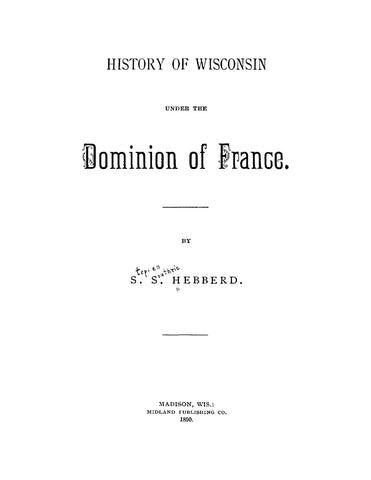
WISCONSIN: History of Wisconsin under the Dominion of France (Softcover)
by S S Hebberd. 1890. 178p
The discontent among Native tribes was largely due to the French monopoly on trade and the low prices of English goods, which created tensions in their relationships with the French. Governor de Vaudreuil acknowledged that the availability of English goods was a significant issue contributing to the troubles faced by the Indians. In response to these challenges, Perrot successfully negotiated with various tribes, leading to a significant assembly that aimed to address their grievances and strengthen alliances.
The Foxes, in particular, resisted French control and sought to maintain their independence by allying with other tribes against the French. This resistance raised concerns among French authorities, who feared losing their influence over the Western tribes as a result of the Foxes' defiance. The situation was further complicated by La Salle's ambitious plans, which were based on exaggerated claims of support from the Indian tribes, ultimately undermining the French position in the region.
As the Iroquois invasions ceased, many tribes returned to their homelands, but the region remained unsettled and fraught with tension. The ongoing struggles for power and control among the various tribes and the French highlighted the complexities of colonial relationships in North America. The dynamics of trade, alliances, and resistance shaped the interactions between the French and Native tribes, leading to a volatile environment that would continue to evolve.
